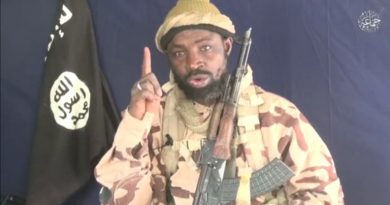Top US envoy Blinken in Afghanistan for troop withdrawal talks | Joe Biden News
US Secretary of State makes an unannounced visit to brief officials on Biden’s plan to withdraw American troops by September 11.
United States Secretary of State Antony Blinken has begun an unannounced visit to Afghanistan to brief officials on President Joe Biden’s plan to withdraw all American troops by the 20th anniversary of the September 11 attacks this year.
Blinken on Thursday met Afghan President Ashraf Ghani as well as senior US officials in Kabul and briefed them on Biden’s Wednesday’s announcement that he was ending “the forever war”, which began in response to the September 11, 2001, attacks.
Biden announced that the remaining 2,500 US soldiers in Afghanistan would be withdrawn from Afghanistan starting on May 1 to end its longest war, rejecting calls for them to stay to ensure a peaceful resolution to that nation’s grinding internal conflict.
“I wanted to demonstrate with my visit the ongoing commitment of the United States to the Islamic Republic and the people of Afghanistan,” Blinken said after meeting Ghani. “The partnership is changing, but the partnership is enduring.”
Blinken is also due to meet Chief Executive Abdullah Abdullah as well as senior US officials in Kabul later on Thursday.
The unconditional withdrawal of US troops – four months later than a deadline agreed with the Taliban last year – comes despite a deadlock in peace talks between the armed group and the Afghan government, which threatens to leave a power vacuum that could plunge the country deeper into violence.
Blinken’s trip to Afghanistan also came after NATO immediately followed suit, saying its roughly 7,000 non-American forces in Afghanistan would be departing within a few months, ending the foreign military presence that had been a fact of life for a generation of Afghans already reeling from more than 40 years of conflict.
Blinken arrived in the Afghan capital of Kabul from Brussels where he and Defense Secretary Lloyd Austin briefed NATO officials on the move and NATO chief Jens Stoltenberg announced the alliance would also be leaving.
Biden, Blinken, Austin and Stoltenberg have all sought to put a brave face on the pullout, maintaining that the US and NATO-led missions to Afghanistan had achieved their goal of decimating Osama bin Laden’s al-Qaeda network that launched the 9/11 attacks and clearing the country of attackers that could use Afghan soil to plot similar strikes.
Meanwhile, fighting continues unabated on the ground despite months of talks in Qatar between the Taliban and the Afghan government negotiators.
Turkey announced this week that it would host a separate international peace conference on Afghanistan from April 24.
The US wants the conference to get the Afghan government and Taliban to agree to some form of unity interim administration and map a future for the country by consensus.
Withdrawal will ‘create vacuum’
Meanwhile, India’s chief of defence staff on Thursday said he is concerned about a vacuum developing in Afghanistan following the proposed withdrawal of US and NATO forces from the country.
General Bipin Rawat told a security conference the worry was that “disruptors” would step into the space created by the withdrawal of foreign troops from Afghanistan. He declined to name the countries that could act as spoilers.
“Our concern is that the vacuum that will be created by the withdrawal of the United States and NATO should not create space for disruptors,” Rawat said.
Some analysts say India’s worry is that instability in Afghanistan could spill over into Indian-administered Kashmir where it has been fighting rebels for more than 30 years.
It is also concerned that archrival Pakistan will gain a bigger hand in Afghanistan because of its longstanding ties with the Taliban, which is expected to play a dominant role once the US forces leave.
“There are many people looking for an opportunity to walk into the space being created,” Rawat said.
India invested $3bn in Afghanistan on roads, power stations and even built its parliament following the removal of the Taliban from power in 2001.
Rawat said India would be happy to provide more support to Afghanistan so long as peace can return.

